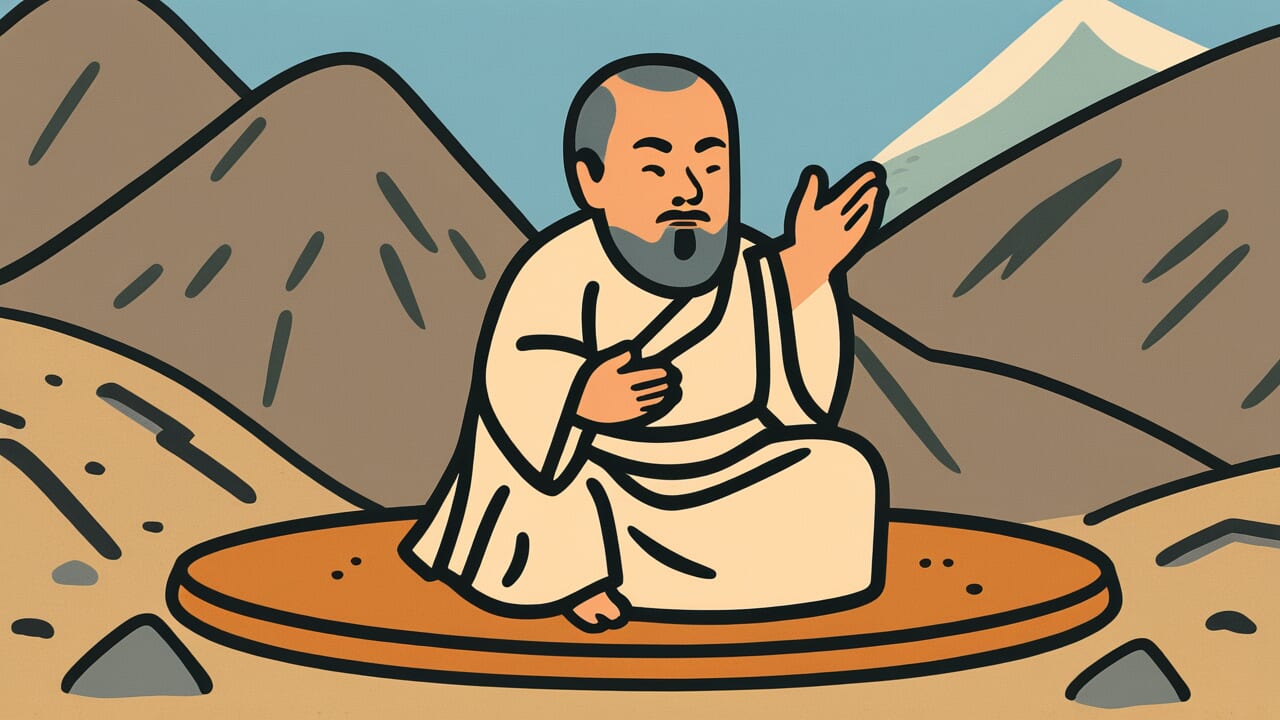How to Read “Even Confucius falls on the mountain of love”
koi no yama ni wa kōshi no taore
Meaning of “Even Confucius falls on the mountain of love”
This proverb expresses how powerful love is and how no one can resist it. Even Confucius, revered as a sage and symbol of reason and wisdom, would lose his footing and fall on the mountain of love.
In other words, no matter how great your knowledge, reason, or moral character, you become powerless before the emotion of love.
People use this proverb when they can’t understand someone’s behavior in love, or when they themselves lose control because they’re head over heels.
It carries both surprise—”I can’t believe that wise person would do such a thing”—and acceptance—”Well, that’s just how love is, so it can’t be helped.”
Even today, we often see normally calm people lose their judgment when it comes to romance. This proverb captures a fundamental truth about human nature: before the power of love, everyone is equally vulnerable.
Origin and Etymology
The exact source of this proverb is unclear, but its structure reveals an interesting background.
Confucius was a thinker from China’s Spring and Autumn period and the founder of Confucianism. He taught about “benevolence” and “propriety,” emphasizing the importance of controlling emotions with reason.
The idea that even such a Confucius would fall before love is quite striking.
The expression “mountain of love” is also worth noting. Mountains have long symbolized steep and difficult paths.
By comparing love to a mountain, the proverb shows how treacherous, unpredictable, and overwhelming the journey of love can be.
This saying likely emerged in Japanese society when Confucian values were widespread. While teachings that valued reason and morality were respected, people experienced the power of love daily.
Even the most virtuous sage becomes powerless before love. By invoking Confucius, the most rational figure imaginable, the proverb expresses this universal truth with humor.
It’s a saying full of humanity, born from the wisdom of common people.
Usage Examples
- She’s usually so cautious, but even Confucius falls on the mountain of love—she’s completely smitten with him
- Even Confucius falls on the mountain of love, so there’s no way I can make calm judgments right now
Universal Wisdom
The universal truth this proverb speaks is that humans have areas beyond reason’s control. We accumulate knowledge, gain experience, and try to become wiser.
But before the emotion of love, all of that can become powerless.
Why has this proverb been passed down for so long? Because humans are fundamentally dual-natured beings.
We have one side that thinks rationally, makes plans, and tries to judge correctly. We also have another side that gets driven by emotions and acts beyond logic.
These two aspects constantly tug at each other inside us.
Romantic feelings are especially powerful because they connect deeply with biological instinct. The fundamental drive to preserve the species overwhelms the ability of reason we acquired later.
This isn’t shameful or a weakness. Rather, it’s proof that we’re alive.
The proverb’s use of Confucius, the pinnacle of intellect, is quite clever. The phrase “even that Confucius” carries a message that you don’t need to blame yourself for being swept up in love.
No perfect human exists. Everyone has emotions and sometimes gets controlled by them. Accepting this fact may be the key to truly understanding humanity.
When AI Hears This
When you examine the brain during romantic love, amazing changes occur. Research at University College London found that when people view photos of their lovers, activity in the prefrontal cortex drops by over 30 percent on average.
The prefrontal cortex handles rational judgment. So when you fall in love, the “thinking part” of your brain literally goes on vacation.
At the same time, the reward system that feels pleasure activates more than twice as much as normal. This pattern resembles drug addiction to substances like cocaine.
In other words, the brain in love gets dominated by “this feels good” sensations and can’t judge “is this right?”
Even more interesting, the amygdala that recognizes a partner’s flaws also decreases in function. That’s why you can’t see your lover’s problems.
The expression that even a sage like Confucius stumbles before love perfectly captures this brain state. Intelligence level and judgment during romance are separate issues.
No matter how developed your prefrontal cortex is, its function gets suppressed when love hormones are released. This biological mechanism is something humanity acquired through evolution to produce offspring.
The brain intentionally releases the brakes so reason doesn’t interfere.
Lessons for Today
This proverb teaches modern people the importance of not demanding perfection. We face constant pressure to be perfect from images on social media, ideals in business books, and society’s expectations of “how we should be.”
But even Confucius falls before love. When you get swept up by emotions or lose your composure, that’s perfectly natural as a human being. You don’t need to blame yourself.
What matters is trying to balance emotion and reason while sometimes allowing yourself to surrender to feelings.
Don’t deny the part of you that gets absorbed in love, but don’t completely lose yourself either. That fluctuation itself is what makes you feel alive.
Modern society values efficiency and rationality, but life needs moments that can’t be calculated. Love is the prime example.
Have the courage to sometimes set reason aside and follow your heart’s voice without fearing risk. Even if you fail, that’s proof of your humanity.
Living with rich emotions has far more value than aiming to be a perfect sage.



Comments